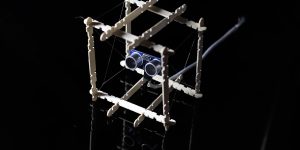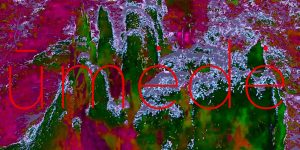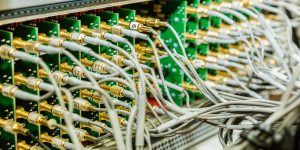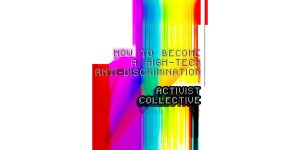Conferences / Lectures / Talks

Role of Media Art
Etsuko Ichihara (JP), Nao Tokui (JP), Natsumi Wada (JP), Shiho Fukuhara (JP), Asako Tomura (JP), Minoru Hatanaka (JP)
Japan Media Arts Festival, which was founded in Japan, focuses on the field of art, entertainment, manga and anime, and is becoming more and more centripetal in its inclusion of various fields. What is the role of media arts in this context? This session the panelist will be discussing the future of media art along with the unique setting of this year’s Ars Electronica to be held online.

Museum inside Network 91 Revisited
Akihiro Kubota (JP), Kazuhiko Hachiya (JP), Koichiro Eto (JP), Yukiko Shikata (JP), Minoru Hatanaka (JP), Seiichi Saito (JP)
NTT ICC in 90s represented an exhibition without reality? This session will invite panelist to think about what media art can do for society in the present day and age, referring to past examples.

Rewinding the History of Japanese Media Art
Ai Hasegawa (JP), Akinori Goto (JP), Ken Furudate (JP), Michiko Tsuda (JP), Minoru Hatanaka (JP), Seiichi Saito (JP)
The history of Japanese media art is very diverse and profound, and it has found various new frontiers. This talk session explores the history of modern Japanese media art in reverse chronological order.

Round Table: Nouvelles technologies et pratiques artistiques dans le contexte d’une crise mondiale:
Sibila Sotomayor Van Rysseghem (CL), Gustavo Celedón Ph.D. (CL), Makis Solomos Ph.D. (FR), Adolfo Vera Ph.D. (CL)
Éthique, Politique, Esthétique et Écologies de l’art - In the round table “New technologies and artistic practices in a global crisis context: Ethics, Politics, Aesthetics and Art Ecologies de l’art texte d’une crise” we aim to reflect collectively about the role of new technologies and art in the current global context with its ethical, political, aesthetical and ecological implications.

Observing the Microscopic Gardens
Saša Spačal (SI), Toby Kiers (NL/US), Esmee Geerken (NL), De Onkruidenier (NL), Spela Petric (SI), Nicola Triscott (UK)
The nocturnal roundtable “Observing the Microscopic Gardens” features three events: 1. Artist Saša Spačal and microbiologist professor Toby Kiers discuss microbial trade agreements 2. Artist/chemist Esmee Geerken and De Onkruideniers present their microscopic garden houses 3. Artist Spela Petric and curator Nicola Triscott discuss what opinions plants and animals might have about human activity on their/our planet.

Observing the Macroscopic Gardens
Christiaan Zwanikken (NL), Raoul Frese (NL), Angelo Vermeulen (BE), Remco Daalder (NL)
The nocturnal roundtable “Observing the Macroscopic Gardens” features two talks: 1. Artist Christaan Zwanikken will talk about city-dwelling plant robots with astrophysicist Raoul Frese 2. Artist-biologist Angelo Vermeulen will talk about socializing Mars-gardens with Remco Daalder, municipal ecologist of Amsterdam

Ūmėdė (pre-symposium)
Julijonas Urbonas, artist Ignas Pavliukevičius, artist and composer Gailė Griciūtė, Vytautas Michelkevičius
Ūmėdė is x⬳ disciplinary symposium for emerging art and related matters, and takes its name from the Lithuanian term for the mushroom Russula. x might stand for post-, ex-, extra-, exo-, trans-, poly-, hyper-, trans-, meta-, ultra-, etc.

Symposium "Unheimliche Freunde"
Around 1978, a metaphor found its way into English android research that the roboticist Masahiro Mori had defined in 1970: the "uncanny valley". Robots that resemble humans too much instill fear and terror. Like us, but never familiar, they inhabit the "uncanny valley." But today, the uncanny valley has almost disappeared. Thanks to RFID chips, GPS and a wide variety of body sensors, our bodies and identities have themselves become interfaces, mouse pointers and prosthetic hands with which algorithms trace and continue to write our profiles. The valley that Mori dug out between the industrial robot and the Nō mask is now levelled. What remains is a suspicion: that the ghosts and the undead are not only the robots, but ourselves as well..

Ars Electronica AIxMusic Online Hackathon
Philippe Esling (FR), Lamtharn Hanoi Hantrakul (TH), Carmine Cella(IT), Edward Tiong (US) and Yishuang Chen (US)
For the occasion of the first online Festival, Ars Electronica will host its first international AIx Music Hackathon as part of the AIxMusic Festival 2020. The hackathon will take place online during the Ars Electronica Festival from 9-13 September 2020. Join our workshops and engage with other hackers, develop prototypes that musicians will be able to integrate, stimulate the use of open data and public resources!
AI x MUSIC FESTIVAL Opening Ceremony
The Grid (US/EU), Gray Area (US), Codame (US), ZERO1 (US), MUTEK.SF (US), EUNIC Silicon Valley (US), EUNIC Washington DC (US), EUNIC New York (US), Ars Electronica AIxMusic Festival (AT), STARTS, European Commission (EU), Center for Humane Technology (US), Salesforce (US)
Your guide through the AIxMUSIC FESTIVAL Opening Ceremony with Livestream.

BR41N.IO Hackathon - The Brain-Computer Interface Designers Hackathon
The BR41N.IO Hackathon brings together programmers, engineers, designers, artists and/or enthusiasts, who collaborate intensively as an interdisciplinary team. Each team must design and build a unique, playful and wearable headpiece that can measure useful EEG signals in real-time to create any sort of interaction. The hacking projects use EEG electrodes and amplifiers, and challenge programmers to code an interface that enables them to control devices, robots or applications, post messages on social media, make paintings, or enact a myriad of other applications only with their thoughts. BR41N.IO also challenges creative minds to design a BCI headset with 3D printers, handcrafted materials and sewing machines.

Nushin Isabelle Yazdani und Internet Teapot (Karla Zavala und Adriaan Odendaal): [d/r]econstructing AI - dreams of visionary fiction and zine-making
How to Become a High-Tech-Anti-Discrimination Activist Collective
With this workshop we investigate the structures behind algorithmic decision making systems, discuss why their design is normative, and how AI systems reinforce structural discrimination. We embark on a speculative journey and discuss how to design to create a more just world. Which artists inspire us? Which values are important to us? We want to collect our thoughts and creative outputs in a zine.

LAB ON STAGE (Adriana Torres Topaga, Martyna Lorenc and Andrea Maria Handler): Phantom Data in our bodies and imagination
How to Become a High-Tech-Anti-Discrimination Activist Collective
This workshop undertakes a performing arts’ approach. Our departure is the embodiment of imagination and perceptual processes. With somatic exercises and performative games, we notice the data flowing in from our bodies: sensation, image, emotion or memory. Imagination has its own training dataset - therefore a specific priming/bias/imprint. We look for practices of becoming aware of HOW we imagine things and what escapes our field of attention.

Astrid Mager und Hong Phuc Dang: How to create your own AI device with SUSI.AI - An Open Source Platform for Conversational Web
How to Become a High-Tech Anti-Discrimination Activist Collective
The workshop introduces SUSI components like SUSI’s technology stack, its wiki-like skill editor and hardware prototype; participants work together to create a simple bot, develop new skills and test them. A reflection on data bias and algorithmic discrimination invites to collectively think about creating non-discriminatory digital technologies.

Doris Allhutter: “When I encountered discriminating IT-systems and did not want to take it anymore” - deconstructing affective entanglements in society-technology relations
How to Become a High-Tech Anti-Discrimination Activist Collective
This workshop uses the deconstructive method of mind scripting to understand the grip that even technologies that we reject may have on us. Using our own memories as an experimental resource we will explore how discrimination and privilege materialize in our practices. This aims at developing collective agency and activisms.

Safiya Umoja Noble: Algorithms of Oppression - How Search Engines Reinforce Racism
How to Become a High-Tech Anti-Discrimination Activist Collective
The landscape of information is rapidly shifting as new demands are increasing investment in digital technologies. Yet, critical scholars continue to demonstrate how many technologies are shaped by and infused with values that are not impartial, disembodied, or lacking positionality. Technologies hold racial, gender, and class politics. In this talk, Dr. Safiya Noble will discuss her recent book, Algorithms of Oppression, and the impact of technology on the public.

Lisa Nakamura: Estranging Digital Racial Terrorism After COVID
How to Become a High-Tech Anti-Discrimination Activist Collective
This talk argues that COVID-19 forced an accelerated migration to digital networks that exposed new audiences to traumatically racist digital events as well as new openings for critique and resistance.

The Woman-Machine
le lieu unique (FR)
The Woman-Machine is a two-day event on the main stage of le lieu unique. In response to La Mettrie (and Kraftwerk) le lieu unique invites artists, scientists and performers to discuss the relationship between AIs and gender, robots and feminism, machine learning and the world after the pandemic.

How to Become a High-Tech Anti-Discrimination Activist Collective
IFG-LIT (AT)
New technologies have penetrated all aspects of our lives and promise a wide range of improvements and efficiencies. Contrary to general perception, though, the algorithms on which these technologies are based are neither neutral nor do they treat everyone equally.

Agora Digitalis
Agora Digitalis is the Interface Cultures’ meeting point during the 2020 Campus Exhibition. The general idea behind it is to create an informal setting where students, (future) makers and future students can meet and become acquainted with Interface Cultures. Agora Digitalis is a physical and virtual place where everyone should be able to share and express their ideas


